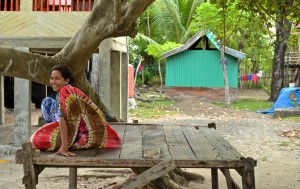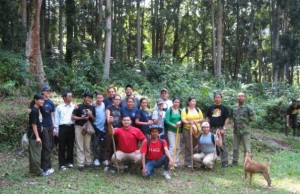I spotted two pairs of female orangutans and their young foraging for food in the Indonesian jungle
|
EL PASO – I opened my eyes and immediately felt the heat of my bed sheet and the mosquito net on my face, the wooden roof seemed like a stranger I saw for the first time, and the mattress I lay on felt unfamiliar. It took me a few seconds to remember that I wasn’t in my room in El Paso, Texas, but rather in a local family’s traditional Islamic home in Bali, Indonesia. This past spring I was admitted into the Indonesia Study Abroad Program, led by Dr. Stacey Sowards, Chair of the Communication Department at the University of Texas at El Paso. Along with 12 other students and four faculty members, I spent three weeks in Indonesia and had the opportunity to observe the environmental conservation programs that the non-governmental organization Rare and the University of Mulawarman run in the island. According to its website, Rare “trains local conservation leaders all over the world to change the way their communities relate to nature…inspiring people to take pride in the species and habitats that make their community unique, while also introducing practical alternatives to environmentally destructive practices.”
Leaving the country for the first time in my life made my mind race a million miles per hour.

